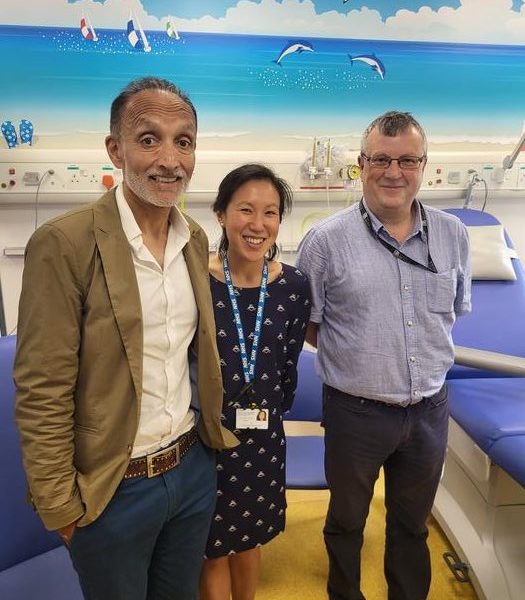
Researchers at the University of Bristol have made a significant step forward in finding a potential cure for a type of childhood kidney disease.
The research project has shown that just one dose of gene therapy targeting cells in the kidney has the potential to cure steroid-resistant nephrotic syndrome.
The research project received early funding from charity Kidney Research UK and the Wellcome Trust and has since gained further support from Purespring Therapeutics.
The findings suggested that replacing one faulty gene that codes for a protein known as podocin could cure the condition.
The protein essential for the functioning of cells called podocytes which have a critical role within the kidney’s filtration system.
Professor Moin Saleem, who led the research, said: “We are hoping that this treatment could be curative.
“You keep the same podocytes for life, so if we can change their gene expression right at the beginning of the disease, we should be able to prevent this disease from progressing.
“With most kidney diseases, there is a reasonable window of opportunity, often years, before you get irreversible damage to the kidneys, where we would hope to be able to intervene with gene therapy and avoid the need for dialysis or transplantation.”
Nephrotic syndrome is a condition where the kidney’s filtering units are damaged, leading large amounts of protein that should be kept in the bloodstream to leak into the urine.
This can lead to swelling, particularly in the eyes and legs, an increased risk of infections and blood clots and the risk of kidney damage.
The condition can occur at any age but is most commonly diagnosed in children under five years old.
Often the symptoms can be managed with a type of medication known as steroids, however, around 10 per cent of children with nephrotic syndrome do not respond to steroids and many will go on to develop kidney failure and will need dialysis or transplant within two to five years.
It is this age group where a faulty gene is frequently the cause of the disease.
The discovery could bring significant benefits to hundreds of children who currently suffer from nephrotic syndrome.
If the intervention is successful, patients will be saved from a life of kidney failure and subsequent dialysis and transplant treatments.
For gene therapy to be successful, researchers must ensure that the new genetic material reaches the right cells and is used by those cells for a long time to restore their normal function.
The researchers used a virus – incapable of causing disease but excellent at carrying genetic information directly into cells – called adeno-associated virus (AAV) to deliver the podocin gene to the correct cell type.
Using the technique, the team were able to replace the original faulty gene in the podocytes, successfully treating several different laboratory-based models of nephrotic syndrome.
Dr Aisling McMahon, Executive Director of Research and Policy at Kidney Research UK said: “If successful, this method could effectively rescue people from a life on gruelling dialysis treatment or from needing a kidney transplant.
“This work offers real hope for patients impacted by steroid-resistant nephrotic syndrome and potentially other genetic kidney diseases too.
“We are delighted to see that our funding has helped progress a project that has real potential to be used in a clinical setting.”
Image: Kidney Research UK



